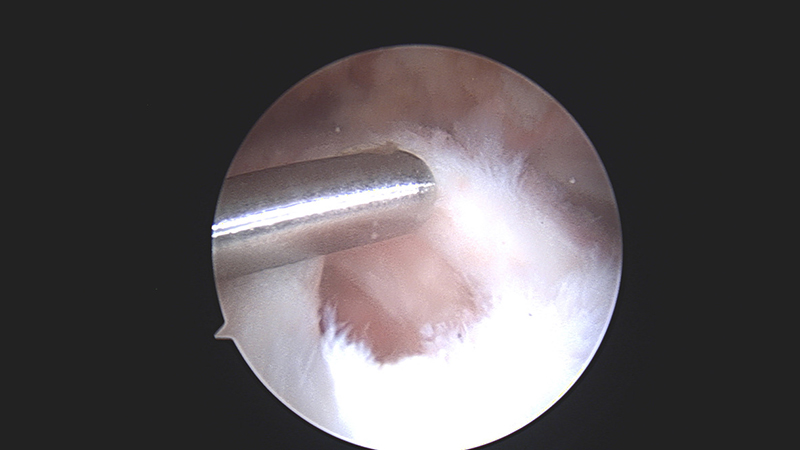Rotator Cuff Tears
What is the rotator cuff?
The rotator cuff is a group of muscles and tendons in the shoulder that play a crucial role in stabilizing and facilitating movements of the shoulder joint. It is comprised of four muscles (supraspinatus, infraspinatus, subscapularis, and teres minor) and their associated tendons. These muscles originate from the scapula (shoulder blade) and insert on the humerus (upper arm bone). Injuries or strains to the rotator cuff can lead to pain, weakness, limited range of motion, and even difficulty performing everyday tasks.

What are the causes of a rotator cuff occur?
Rotator cuff injuries can occur due to various factors, often stemming from either acute trauma or chronic overuse. Rotator cuff injuries can range from mild strains or inflammation to partial or complete tears of the tendons.
Chronic Overuse:
- Repetitive Motions: Activities or occupations that involve repetitive overhead arm movements (e.g., painting, throwing, swimming) can gradually wear down the rotator cuff tendons, leading to inflammation, strains, or tears over time.
- Muscle Imbalance: Weakness or imbalance in the muscles surrounding the shoulder joint, including the rotator cuff muscles, can lead to increased vulnerability to injury.
- Aging and Degeneration: As people age, tendons naturally degenerate and become more prone to injury. Degenerative changes within the tendons can make them more susceptible to tears, even with minor stress.
Acute Trauma:
- Falls: Landing directly onto the shoulder or outstretched arm can cause a sudden tear or strain in the rotator cuff tendons.
- Impact Injuries: Direct impact, such as during a collision in sports like football or hockey, can lead to rotator cuff tears or strains.
- Lifting Heavy Objects: Lifting a heavy object or suddenly pulling something heavy can strain or tear the rotator cuff tendons, especially if the movement is abrupt or if the person is not accustomed to such exertion.
What are the symptoms of a rotator cuff tear?
Rotator cuff tears can cause a range of symptoms, and these can vary depending on the severity of the tear and whether it’s a partial or full-thickness tear. Some common symptoms associated with rotator cuff tears include:
Pain:
- Dull Ache: Persistent, deep, or dull pain in the shoulder, especially when resting or at night.
- Sharp Pain: Sudden or sharp pain when lifting or moving the arm, particularly when performing overhead movements.
Weakness:
- Difficulty Lifting or Rotating: Weakness in the shoulder, making it challenging to lift the arm or perform activities that involve overhead movements.
- Loss of Strength: Decreased strength when trying to use the arm for various tasks, such as reaching or carrying objects.
Limited Range of Motion:
- Reduced Mobility: Difficulty or inability to move the arm fully, especially when trying to raise it overhead or behind the back.
- Stiffness: A feeling of stiffness or tightness in the shoulder joint.
Noises and Sensations:
- Clicking or Popping: Some individuals might experience clicking, popping, or grinding sensations within the shoulder joint during movement.
- Catching Sensation: Sensation of the shoulder catching or locking when trying to move the arm.
How is a rotator cuff tear diagnosed?
During your consultation with Dr. Shane J. Nho, a thorough diagnostic process will be undertaken to assess the possibility of a rotator cuff tear. Dr. Nho will begin by gathering a detailed medical history, paying close attention to the circumstances surrounding the onset of symptoms, any specific injuries, and the nature of the pain or discomfort experienced.
Following the history-taking, Dr. Nho will conduct a comprehensive physical examination, which includes assessing the range of motion, stability, and strength of your shoulder. Certain findings during this examination, such as pain with raising the arm, weakness, and limited range of motion, may infer a rotator cuff tear.
As part of the diagnostic process, X-rays will be ordered to evaluate the overall structure of the shoulder joint and rule out other potential issues, such as fractures, dislocation, or arthritis.
However, definitive diagnosis of a rotator cuff tear often requires more advanced imaging, such as magnetic resonance imaging (MRI). An MRI provides detailed images of the soft tissues within and around the shoulder, allowing Dr. Nho to visualize the rotator cuff tendons and assess for the presence and extent of any tears. The MRI is a crucial tool for confirming the diagnosis and guiding the appropriate course of treatment.
At a Glance
Dr. Shane Nho
- Board-certified, fellowship-trained orthopedic surgeon
- Team Physician for Chicago Bulls, White Sox, Steel
- Performs more than 700 procedures each year
- Learn more
